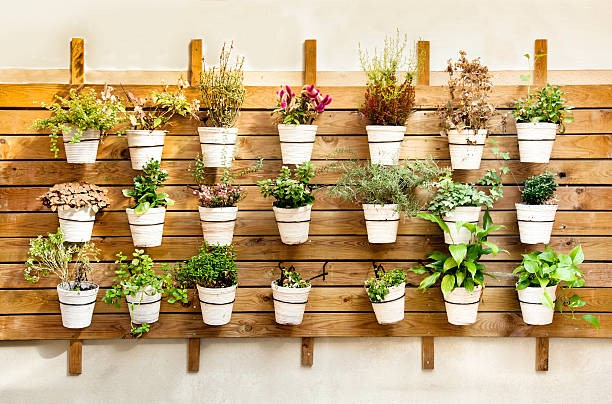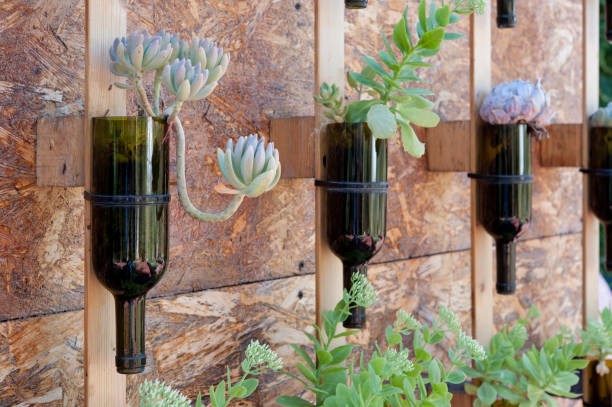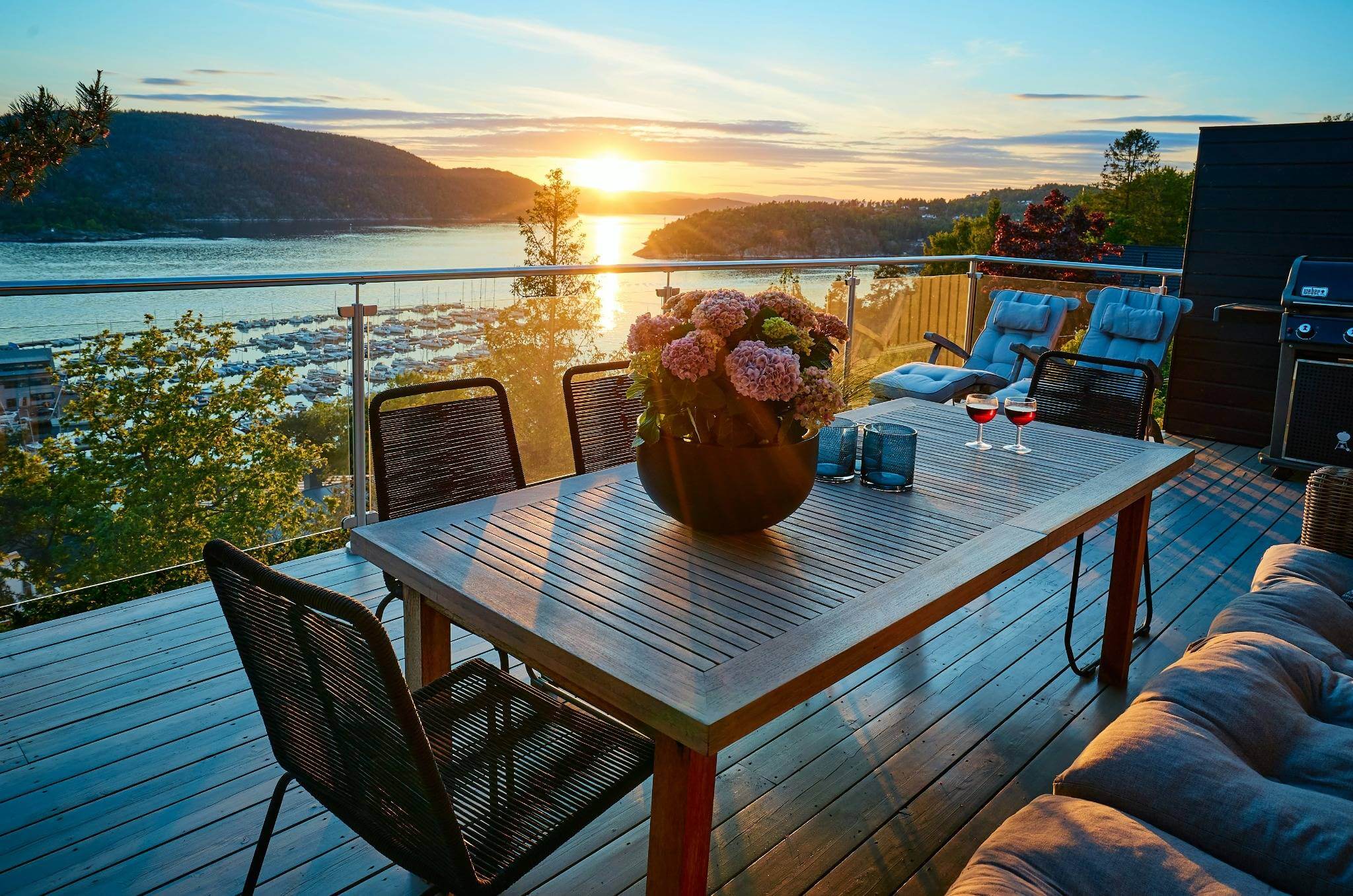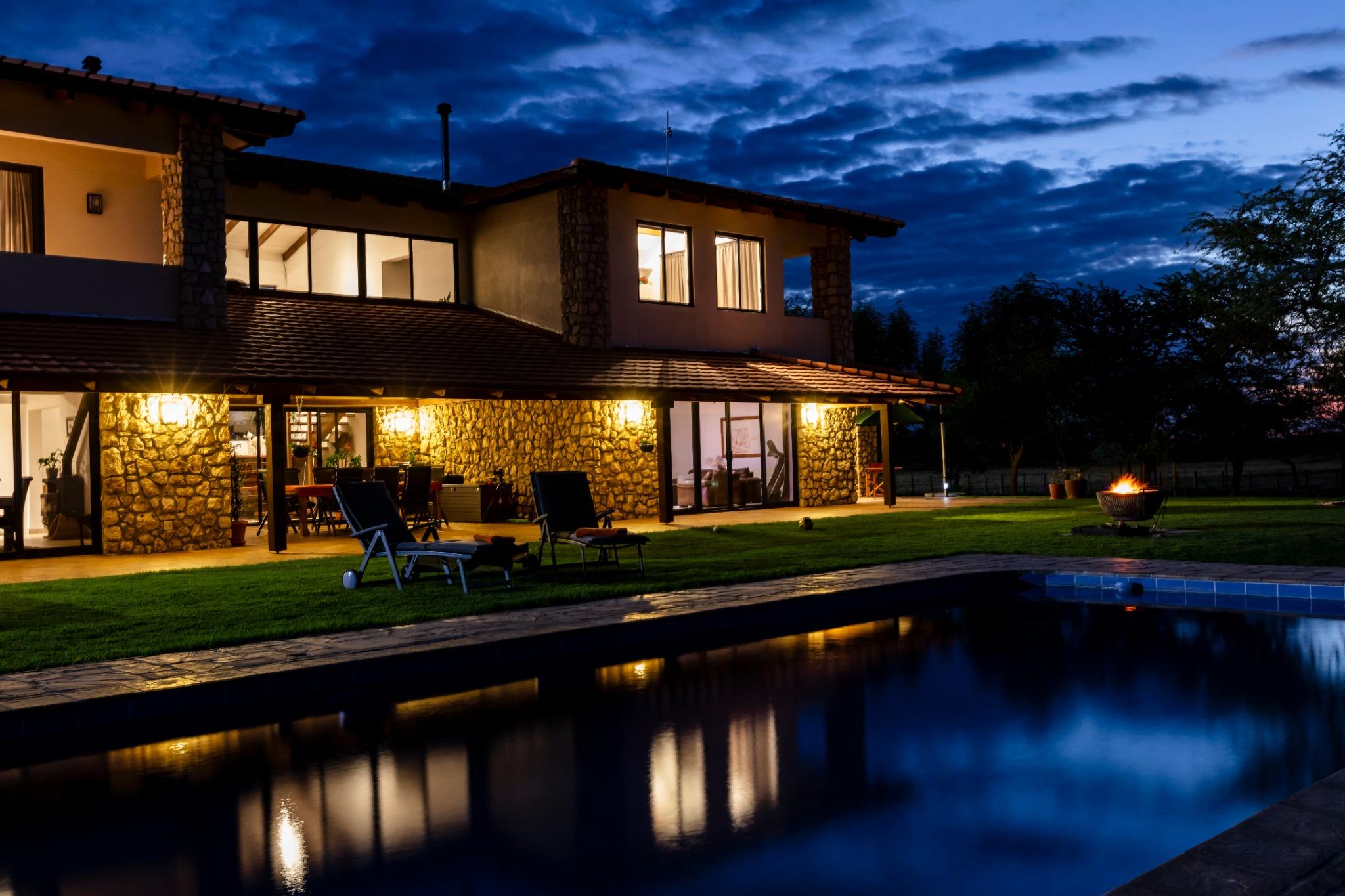Have you ever stopped to think that the most charming gardens are not always the most expensive or designed by famous landscapers? Sometimes, beauty lies precisely in the simplicity and creativity with which we use what we have at hand. If you love the world of landscaping or are just starting to explore it, know that creating gardens using recycled materials is an incredible way to combine sustainability, style, and personality.
In this article, we’ll explore how to transform small or large outdoor spaces into true ecological havens. Whether you’re already hands-on in the garden or just getting into greenery now, stick with me until the end.

Why Use Recycled Materials in Gardens?
A green gesture with great impact
The truth is, with so many things being discarded every day, reusing materials is an act of love for the planet. When you choose to build your garden with recycled materials, you’re preventing usable objects from ending up in landfills. More than that: you’re turning waste into art.
Saving through creativity
Reusing is also a way to save money. Materials like pallets, tires, bottles, and crates are often easy to find—sometimes even for free. And don’t think that takes away elegance from your garden—on the contrary. A well-thought-out project using recycled materials can become a stunning aesthetic feature and even a conversation piece among friends and visitors.
What Can Be Reused in Gardens?
Here’s a list of ideas that work really well and might serve as inspiration:
1. Pallets and fruit crates
These two are champions of versatility. With pallets, you can build vertical planters, benches, fences, and even decks. Wooden crates can easily become charming flower boxes or organizers for pots. A good tip is to sand the wood well, apply varnish, and paint them with colors that match the rest of the space.
2. Used tires
Whether painted or natural, tires can be turned into beautiful hanging pots, outdoor ottomans, garden toys for children, or low flowerbeds. A creative idea is to stack three tires, plant flowers on top, and make a “green sculpture.”
3. PET bottles and glass jars
Plastic bottles are great for creating vertical gardens on walls and fences. Just cut an opening, add soil, and plant herbs or flowers. Glass jars can be used as lanterns, succulent pots, or decorative candle holders—adding a special charm to nighttime gardens!
4. Old furniture
That old chair headed for the trash can become a lovely support for a fern pot. Old dressers also make stylish planters when the drawers are filled with soil and flowers. The rule is simple: if it’s still sturdy, it can become something beautiful and functional.
5. Metal utensils
Old watering cans, rusted pots, zinc buckets, and other forgotten metal utensils come to life in the garden when repurposed as pots or decorative elements. The blend of greenery with the vintage feel of these items creates a cozy and nostalgic look.
Recycled Materials and Their Uses in the Garden
| Recycled Material | Possible Uses in the Garden | Extra Tip |
|---|---|---|
| Pallets | Vertical planters, benches, fences, decks | Sand and varnish for durability |
| Fruit crates | Flower boxes, pot organizers | Paint with vibrant colors for decoration |
| Used tires | Pots, ottomans, green sculptures | Use spray paint for a modern look |
| PET bottles | Vertical gardens, hanging pots | Make drainage holes to avoid water buildup |
| Glass jars | Succulent pots, lanterns, candle holders | Great for nighttime decoration with LED lights |
| Old furniture | Drawer planters, pot stands | Mix styles for a garden full of personality |
| Metal utensils | Creative pots, decorative pieces | Combine with delicate flowers for contrast |
| Shoe racks/bags | Compact vertical gardens | Perfect for apartment herb gardens |
| Cans and plastic jars | Hanging or wall-mounted pots | Paint and pierce for drainage and harmony |
How to Plan a Garden with Recycled Materials
Evaluate the space and lighting
Before setting everything up, take a good look at where the garden will go. See how much sun it gets per day, where it’s windier, if there’s water nearby. This helps you choose the right plants and the best structure for durability.
Choose plants with purpose
Plants suited to the local climate tend to last longer and require less maintenance. Aromatic herbs like rosemary, basil, and mint are great to start with. You can also go for succulents, seasonal flowers, and climbing plants.
Combine function and aesthetics
The fun of working with recycled materials is letting your creativity run wild. Use crates as storage niches. Make a bench with pallets. Repurpose an old ladder as a plant shelf. Everything can be functional and beautiful at once.
Start small
Many people get excited and want to revamp the entire backyard at once. Take it easy! Start with a small corner, see what works best, and what materials you enjoy working with. That way, you gain experience and confidence to expand.
Vertical Gardens: A Smart and Sustainable Solution
If you’re short on space, live in an apartment, or want to make the most of a dull wall, vertical gardens are the perfect solution. Besides being visually stunning, they help improve air quality, control temperature, and give that fresh green vibe to any space.
Why Go for Vertical Gardens?
- Space optimization: Even the smallest wall can become a lush garden.
- Thermal and acoustic insulation: Plants help regulate temperature and absorb sound.
- Unique aesthetics: A well-crafted vertical garden becomes a living and decorative panel.
- Easy maintenance: With a good irrigation system and the right plants, daily care is minimal.
How to Build a Vertical Garden with Recycled Materials
1. PET bottles
Cut bottles in half, drill drainage holes, and hang them on a vertical structure (like a mesh or trellis). Plant herbs, spices, or small flowers.
2. Pallets
Attach the pallet to the wall and fill the gaps between the slats with pots or planting bags. You can even line it with garden fabric and fill directly with substrate.
3. Reused cans and jars
Aluminum cans and ice cream containers can be attached to wooden or metal panels. Paint and pierce them for better drainage. They’re great for urban vegetable gardens.
4. Old shoe organizers and bags
That fabric shoe organizer forgotten in your closet can become a charming vertical garden! Just fill the pockets with soil and plant. Perfect for lettuce, strawberries, and herbs.

Important Tips
- Plant selection: Go for light species with small roots that match your local climate. Succulents, ferns, pothos, and ivy are top choices.
- Drainage: Always pierce containers to avoid water accumulation.
- Irrigation: A drip system can be a great way to keep the garden healthy with little effort.




